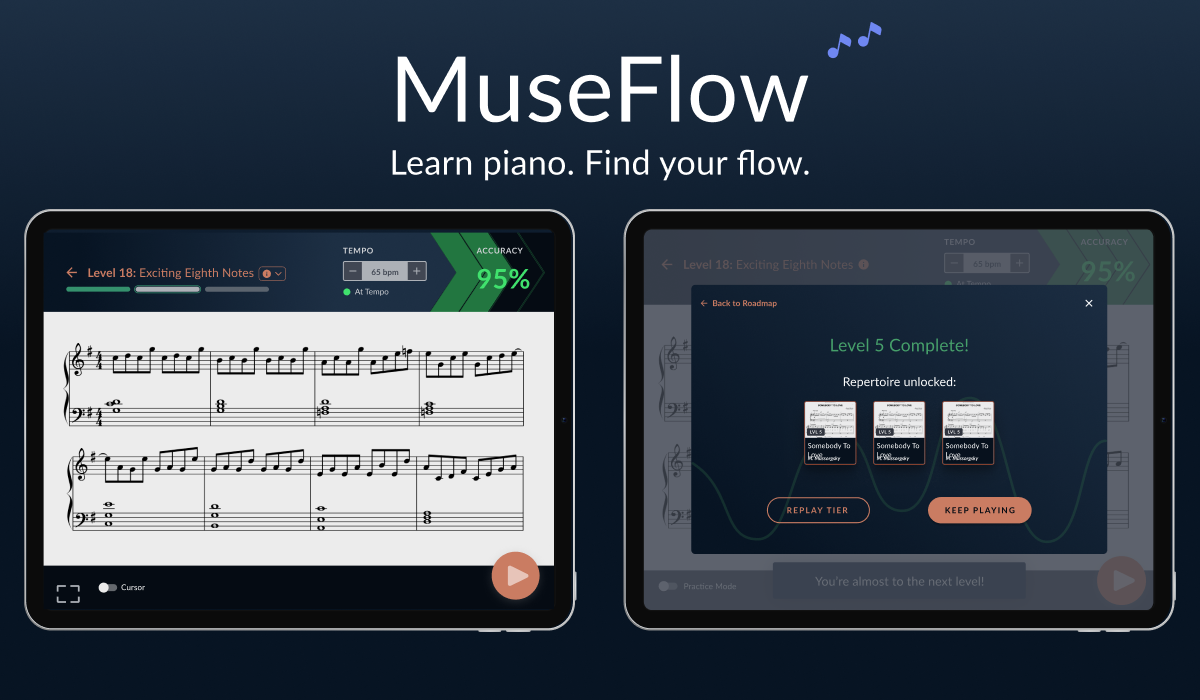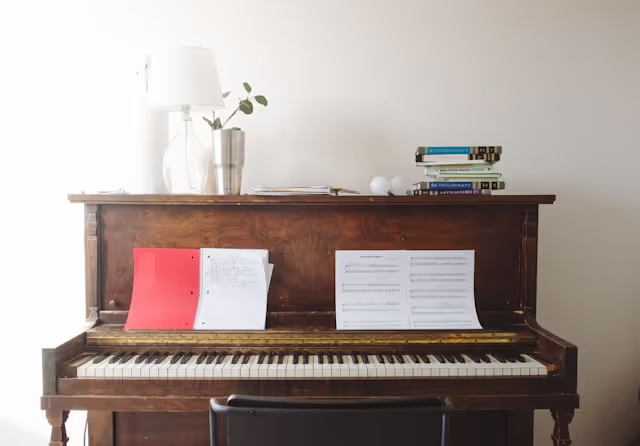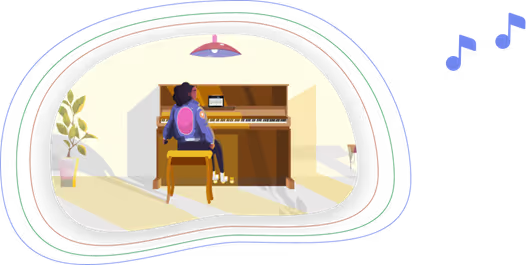The Rise of Self-Learning Piano Apps:How AI Makes It Possible
Piano learning used to require three things: money, time, and access to a teacher. If you had all three, great. If you didn't? Your musical dreams stayed dreams. MuseFlow is part of a revolution that's changing this equation entirely, using sophisticated technology to deliver what people hope for from a self-learning piano AI app: intelligent guidance without the traditional barriers.
Over the past decade, technology has demolished the walls that kept millions from learning piano. While we use advanced algorithms and data-driven design rather than marketing everything as "AI," we deliver exactly what learners want when they search for ways to self-learn piano with AI. adaptive challenges, instant feedback, and genuine progress.
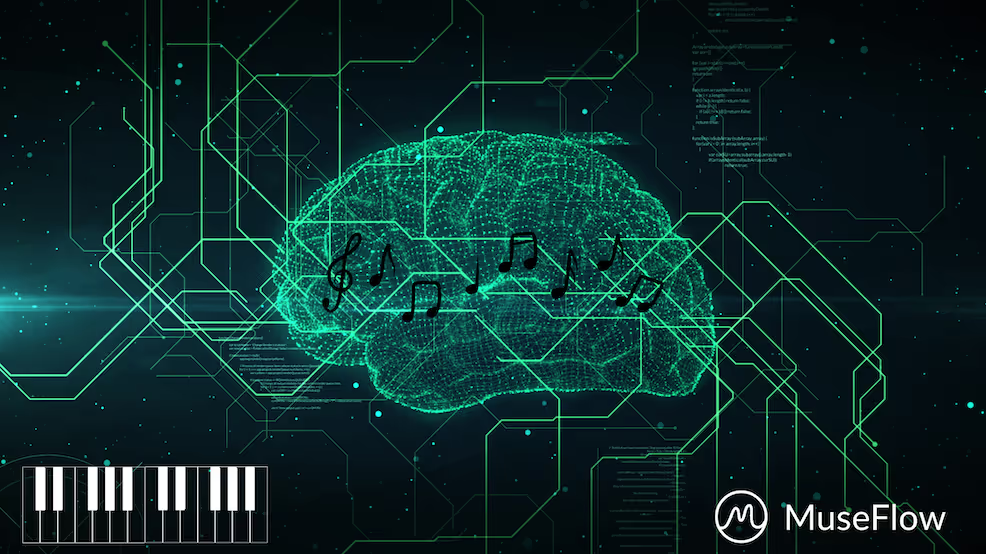
Breaking Down the Old Walls
Money. Private piano lessons cost $50-$150 per hour. That's $2,600-$7,800 per year for weekly lessons. For most families, that's simply not realistic.
Time. Weekly lessons at 3 PM every Tuesday don't work when you have an unpredictable schedule, kids with activities, or a job with irregular hours.
Access. Live in a rural area? Good piano teachers might be an hour away. Have social anxiety? The thought of performing for a teacher every week is paralyzing.
Feedback. Between lessons, you practice alone for 167 hours. If your technique is wrong, you're reinforcing bad habits for an entire week before anyone can correct you.
These barriers weren't just inconvenient. They were gatekeepers that determined who got to be musical and who didn't.
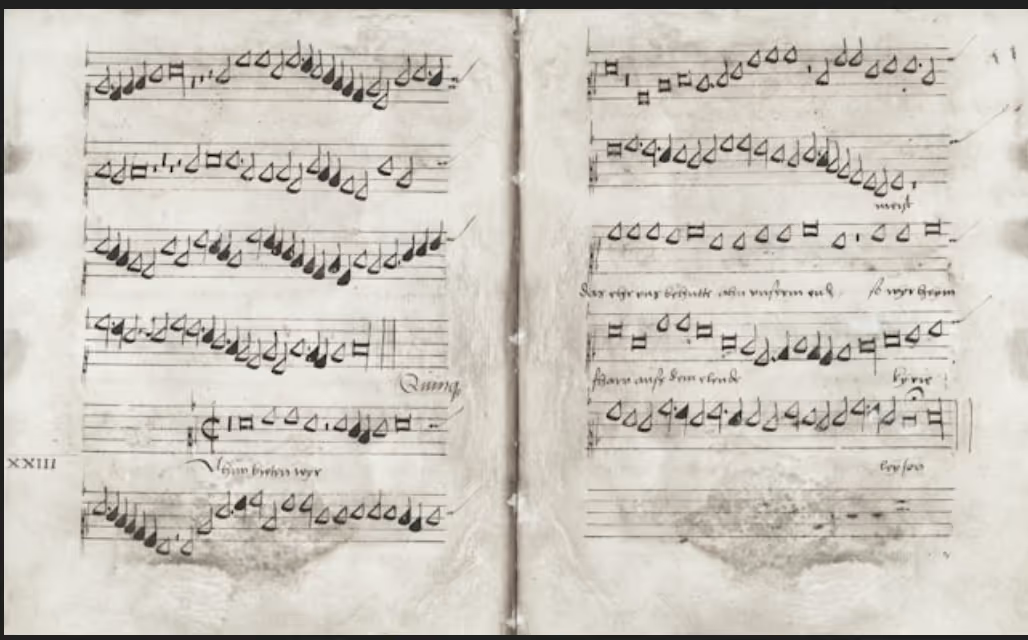
Enter Technology: The Great Equalizer
Modern piano learning technology solves each of these problems systematically. This is what draws people to search for an AI app to learn piano.. they're looking for solutions to real obstacles.
Cost drops to nearly nothing. MuseFlow costs less per month than a single traditional lesson. Suddenly, piano education is accessible to anyone with a keyboard and a device.
Schedule becomes irrelevant. Want to practice at 5 AM? Midnight? During your lunch break? MuseFlow is always ready. Studies on music learning motivation confirm that this autonomy drives better long-term outcomes.
Geography doesn't matter. Whether you live in Manhattan or rural Montana, you have access to the same sophisticated learning system.
Feedback becomes instant. Connect your MIDI keyboard to MuseFlow and every note gets immediate response. Green for perfect, yellow for timing issues, red for errors. Research from MIT demonstrates that immediate feedback enhances neural processing.
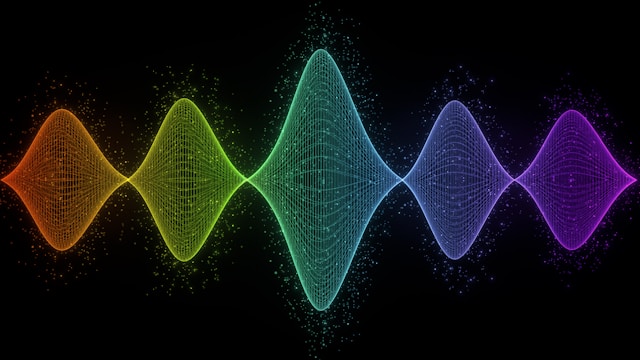
The Sight Reading Secret Nobody Talks About
Here's what separates effective self-learning piano AI app solutions from gimmicks: they teach you to read music fluently, not just memorize songs.
If you're learning independently, what happens when you finish the app's song library? If you can't read music, you're stuck. But if you can sight read? You can pick up any sheet music and play it. That's real independence.
MuseFlow's approach prioritizes sight reading from day one. Our never-repeating music generation means you can't memorize your way through.. you have to actually read. Research confirms that sight reading proficiency is the strongest predictor of long-term musical success.
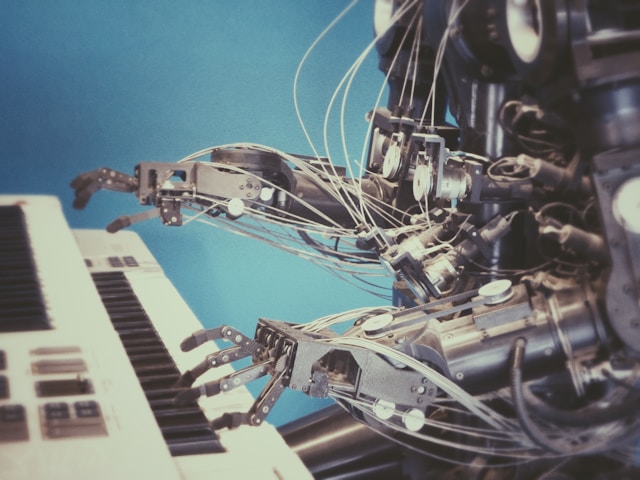
What "AI" Really Means in Piano Learning
When people search for ways to self-learn piano with AI, they're asking for systems that adapt to their unique progress, not a one-size-fits-all curriculum. MuseFlow's 27-level roadmap introduces concepts when you're ready, not when a calendar says you should be.
They want feedback that's instant and accurate, not delayed by days. Our real-time response system creates the tight learning loops that accelerate skill acquisition.
They want practice that's engaging enough to sustain long-term. Our gamified approach makes daily practice something you want to do.
They want learning that builds transferable skills, not just the ability to play a fixed list of songs. When you develop sight reading fluency, every piece of music becomes accessible.
Whether you call it AI, algorithms, or intelligent software design matters less than whether it delivers these outcomes. Studies from USC show that consistent musical training strengthens brain networks.
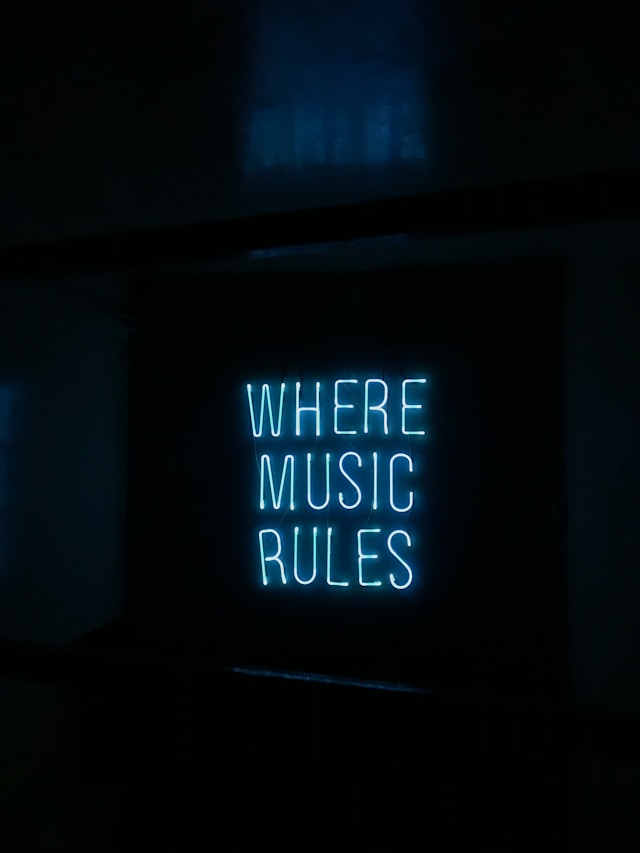
Why Most Piano Apps Miss the Mark
The app stores are full of piano learning apps promising to teach you in 30 days or make learning "fun and easy." But most of them teach you to memorize a handful of popular songs. That's fine for a party trick. It's not fine for genuine musical development.
The difference with MuseFlow? We're not trying to replace human teachers with artificial intelligence. We're using technology to solve specific problems: lack of appropriate practice material, delayed feedback, inconsistent motivation, and dependence on memorization.
Our never-repeating music forces actual reading. Our real-time feedback creates tight learning loops. Our progressive curriculum builds skills systematically. Our Flow State design makes practice genuinely engaging. Our sight reading focus creates real independence.
When you use MuseFlow, you're getting the benefits people hope for from self-learning piano AI app solutions without the hype. The benefits of musical education extend far beyond technical skill, enhancing cognitive function and emotional well-being.

The Revolution Is Already Here
The rise of technology-enhanced piano learning isn't coming. It's already happened. The question isn't whether AI makes self-learning possible.. it's whether you're going to take advantage of what's now available.
MuseFlow represents the best of what modern technology offers: intelligent, adaptive, engaging piano education that builds lasting skills. No expensive lessons. No rigid schedules. No geographic limitations.
Ready to experience what's possible when technology meets musicianship? Try MuseFlow for free and discover the future of piano learning.


.svg)

.jpg)

